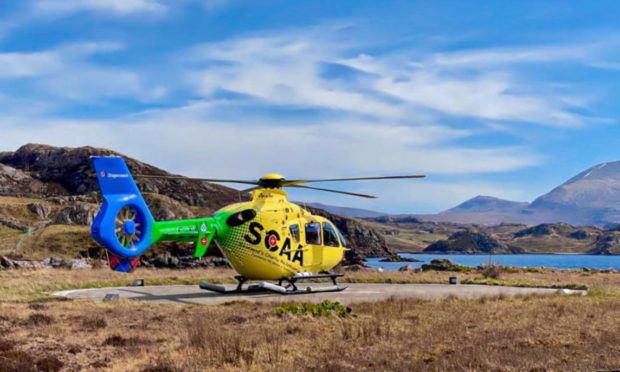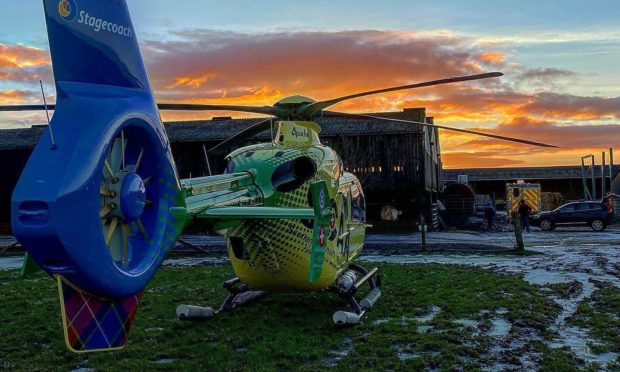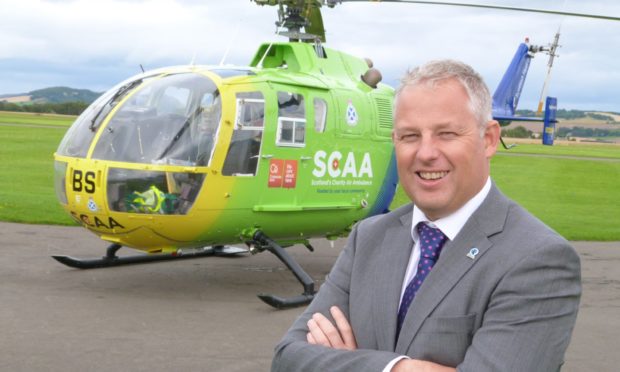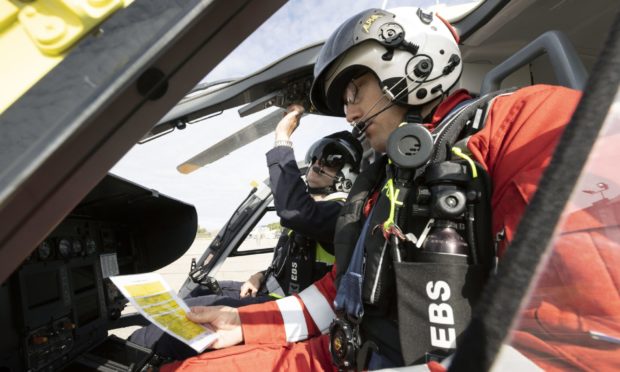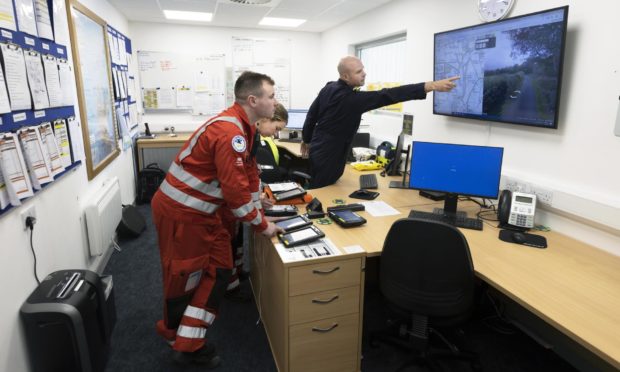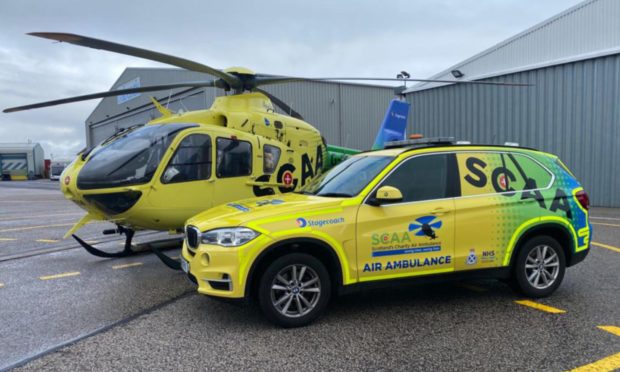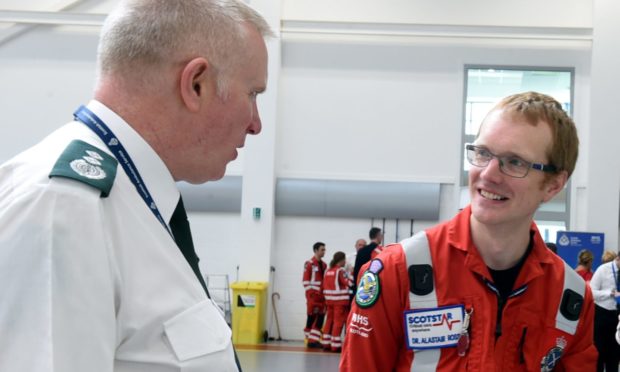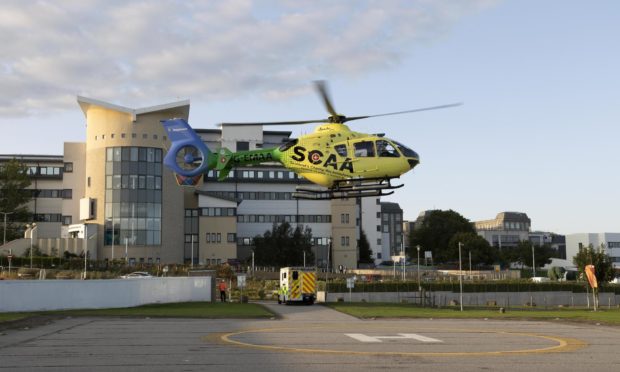The introduction of SCAA’s Helimed 79 has had a particular impact for Orkney.
During its first year in operation, the aircraft has landed on the islands 26 times.
While these call-outs have largely been to transfer patients to the mainland for surgery or further tests, there have been some where emergency treatment was required.
Paramedic Laura McAllister said: “I remember one on Stronsay, or one of the very north islands, where there’s generally no access apart from by boat or helicopter.
“We had the call for a man who had fallen outside.
“It was a good job as we were coming all the way from Aberdeen and yes, it does take a while but for them, it’s their only lifeline.
“The patient was so grateful as he knew otherwise he’d have to wait at least four hours for anyone to get to him.
“He knew there was no way off the island unless the helicopter came.”
Helimed 79 typically takes 50-60 minutes to arrive in Orkney after taking off from its base in Dyce.
Pilot Pete Winn said: “It shows the benefit the helicopter provides to the islands.
“Just yesterday we had two jobs – one from Stronsay to Kirkwall, taking a girl to hospital, and then a retrieval from Kirkwall to Aberdeen.
“There’s that inter-island transfer capability and, when they need a higher level of care, the ability to take them down to Aberdeen.
“It’s great to be able to provide that.”
Orkney MSP Liam McArthur said: “The air ambulance service is a genuine lifeline for island communities and it’s tremendous to see the difference Helimed 79 is already making to support the operation of this vital work.
“This addition to the fleet has helped to shorten response times and enhance patient care and treatment in time-critical emergencies across some of the most remote parts of the country.
“Of course, none of this would have happened without the outstanding fundraising efforts from the team at SCAA and the generosity of the public.
“It’s excellent to see this hard work now paying off and I thank all those who have helped contribute to this success.”
The Orkney islands are not the only remote and rural locations in which the Helimed 79 team have helped to save lives.
Their very first tasking was to Turriff – almost an hour’s drive from Aberdeen – where a patient was suffering a stroke.
And on August 12 the team, and fellow SCAA aircraft Helimed 76, were sent to the site of the train derailment near Stonehaven.
Three people died and six others were injured in the incident.
Mr Winn said: “The whole Scottish ambulance service machinery swung straight into action.
“We were the first aircraft on scene and we had assets ready to lift people if needed.
“It was a horrendous job, but we are thankful it wasn’t any worse. If it had been a normal (pre pandemic) weekend all the assets would have been needed, I think.”
Paramedic Rich Forte said: “If it had, we could have been ferrying patients there to the pad and straight back to the scene.
“It was a really inaccessible location as well so if we were needed, it would have been essential.
“All the assets would have been working hard. It’s great to have that ability.”
